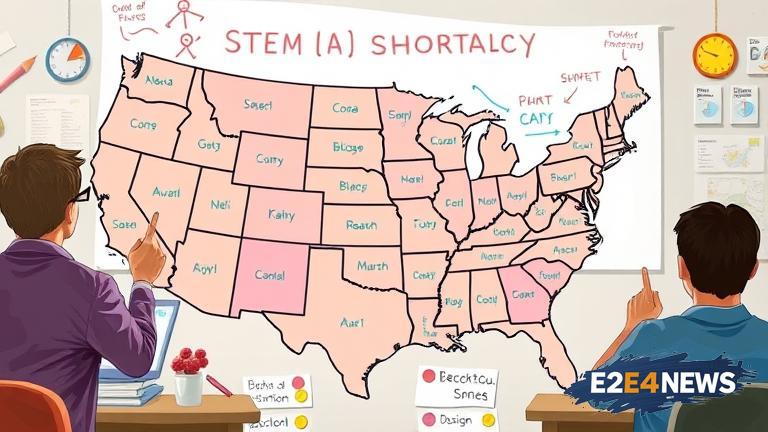The US education system is currently facing a significant crisis due to a shortage of STEM teachers in schools. The superintendent of Fort Scott, Kansas, has expressed concern over the lack of qualified teachers in science, technology, engineering, and mathematics. This shortage is not only limited to Fort Scott but is a nationwide issue, with many schools struggling to find qualified STEM teachers. The superintendent has stated that the district is finding it challenging to fill vacant STEM teaching positions, which is affecting the quality of education provided to students. The shortage of STEM teachers is attributed to various factors, including low pay, lack of resources, and limited opportunities for professional development. Many teachers are leaving the profession due to these factors, leading to a significant shortage of qualified educators. The superintendent has emphasized the importance of STEM education in preparing students for future careers and has called for increased funding and support to address the shortage. The district is exploring alternative solutions, such as hiring teachers from other states and providing additional training to existing staff. However, these solutions are not without their challenges, and the district is facing difficulties in attracting and retaining qualified teachers. The STEM teacher shortage is not only affecting Fort Scott but also has implications for the broader US economy, as a lack of skilled workers in these fields can hinder innovation and competitiveness. The issue is being addressed at the state and federal levels, with initiatives aimed at increasing funding for STEM education and providing incentives for teachers to pursue careers in these fields. Despite these efforts, the shortage of STEM teachers remains a significant challenge, and schools are being forced to get creative in their attempts to fill the gap. The superintendent has urged parents, educators, and policymakers to work together to address the shortage and ensure that students receive a high-quality education in STEM subjects. The long-term consequences of the shortage are still unknown, but it is clear that immediate action is needed to address the issue. The US education system is at a critical juncture, and the shortage of STEM teachers has the potential to have far-reaching consequences for the country’s future. In conclusion, the shortage of STEM teachers is a complex issue that requires a multifaceted solution, and it is essential that stakeholders work together to address the crisis and ensure that students receive the education they deserve.
